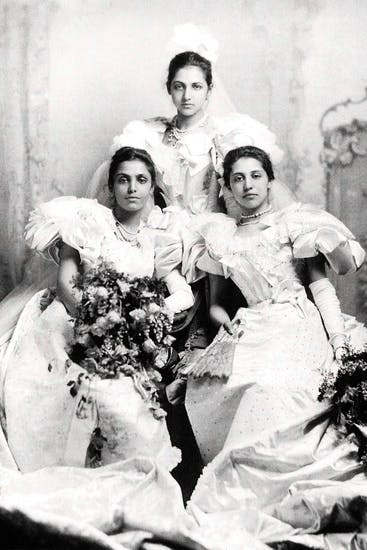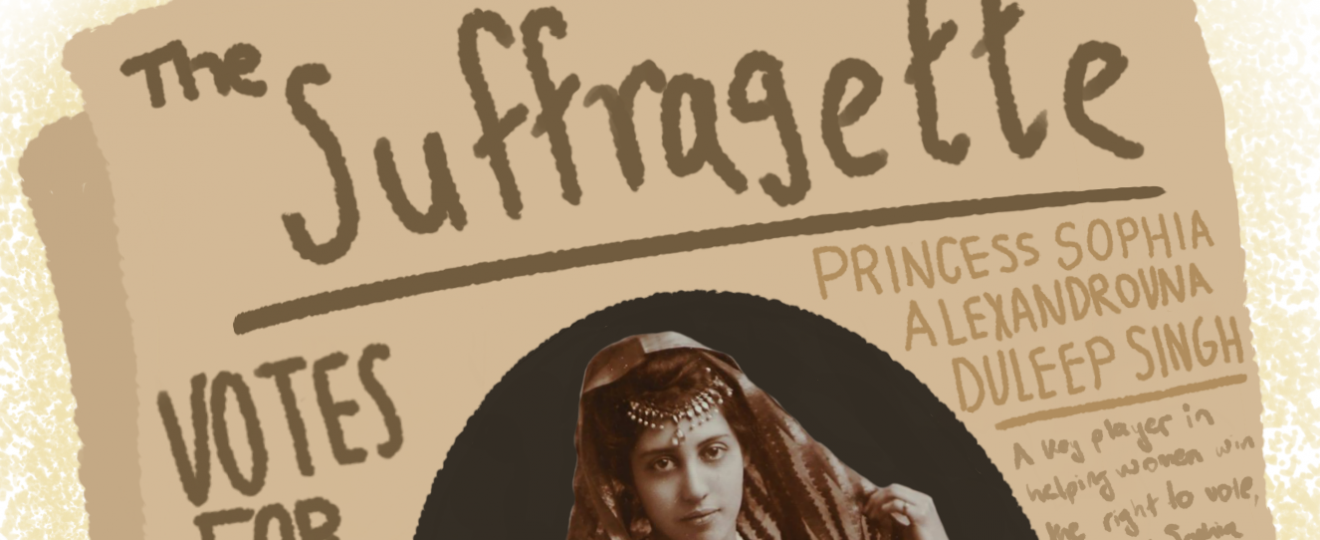Our generation is one characterised by rapid social change and a desire for acceptance and equality regardless of race, gender, sexuality and religion.
Social media has given us the ability to bring injustices to light, to have our voices heard and speak on behalf of those who still have no voice of their own. But we must thank previous generations for our ability to do so. In the case of women, we owe our voices to the suffragettes who campaigned for the female vote, sparking the beginning of our quest for equal opportunity and privilege.
Sophia Duleep Singh is one unsung hero of this movement. As an Indian woman residing in England, it took years of campaigning for the State to acknowledge her as a voter – but the power she held was ultimately more significant.
She was the granddaughter of the prosperous Ranjit Singh of Punjab – a King who was renowned for his success, charisma and love for the people. After Ranjit Singh’s death, Sophia’s father was forced to give up the Kingdom and was exiled to England to cease as a threat to British rule in Punjab. During their time in England, the Singh family won favour with the monarch of the time; Queen Victoria. This favour proved crucial after Sophia’s father deserted them in England, leaving for Paris with a mistress. Sophia and her siblings were born and raised in a Suffolk country estate, as the Queen’s godchildren.

Sophia and her closest sisters, Bamba and Catherine, enjoyed a life of bliss as debutantes amongst the British aristocrats – unaware of their Grandfather’s legacy and the voices of their people. They were featured in high fashion magazines and lauded as celebrities. It was only when the sisters travelled to India for the first time, that she came to realise her heritage and the place she held in the heart of the Punjabi people. Despite the disapproval of her imperial patrons, Sophia met with Indian nationalists and learned of her people’s suffering under British rule – filling her with revolutionary appetite and a desire for justice.
The factors motivating Sophia’s interest in the suffragette movement were thought to be altruistic. Thanks to her royal connections she was in a unique position as a woman whose voice was easily heard – it was always the plight of others for which she fought. After her sister, Bamba was
This, coupled with her desire to make something of her family’s duty to the people, is what gave rise to the figure of the Suffragette Princess.
Sophia not only used her celebrity status to promote the suffrage movement
‘When the women of England are enfranchised and the State acknowledges me as a citizen I shall, of course, pay my share willingly to its upkeep. I am not a fit person for the purposes of representation, why should I be a fit person for taxation?’
She remained a key player in the taxation resistance movement until women were first permitted the vote in 1918.
This new voting demographic included women over the age of 30, those who owned property or those who were married to a member of the local government register. This still excluded a great number of women, especially women of colour. But it was at least the beginning of a path to equality, a legacy which nowadays people of all nationalities and gender identities strive for.
We have forged this path by following in the footsteps of figures like Sophia, and we break new ground every time we choose to use our voices to promote justice.
art by: Julie Torres




